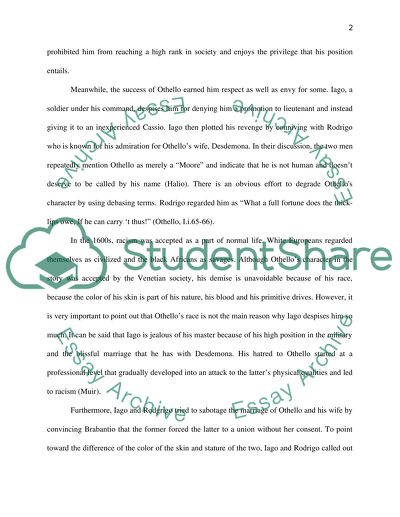Cite this document
(“Othello: Shakespeares Radical Depiction of Race in the 17th Century Research Paper”, n.d.)
Othello: Shakespeares Radical Depiction of Race in the 17th Century Research Paper. Retrieved from https://studentshare.org/literature/1452981-othello-shakespeares-radical-depiction-of-race-in-the-17th-century
Othello: Shakespeares Radical Depiction of Race in the 17th Century Research Paper. Retrieved from https://studentshare.org/literature/1452981-othello-shakespeares-radical-depiction-of-race-in-the-17th-century
(Othello: Shakespeares Radical Depiction of Race in the 17th Century Research Paper)
Othello: Shakespeares Radical Depiction of Race in the 17th Century Research Paper. https://studentshare.org/literature/1452981-othello-shakespeares-radical-depiction-of-race-in-the-17th-century.
Othello: Shakespeares Radical Depiction of Race in the 17th Century Research Paper. https://studentshare.org/literature/1452981-othello-shakespeares-radical-depiction-of-race-in-the-17th-century.
“Othello: Shakespeares Radical Depiction of Race in the 17th Century Research Paper”, n.d. https://studentshare.org/literature/1452981-othello-shakespeares-radical-depiction-of-race-in-the-17th-century.


